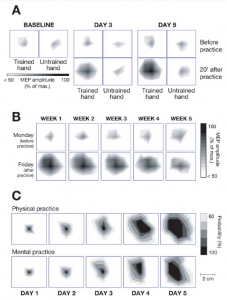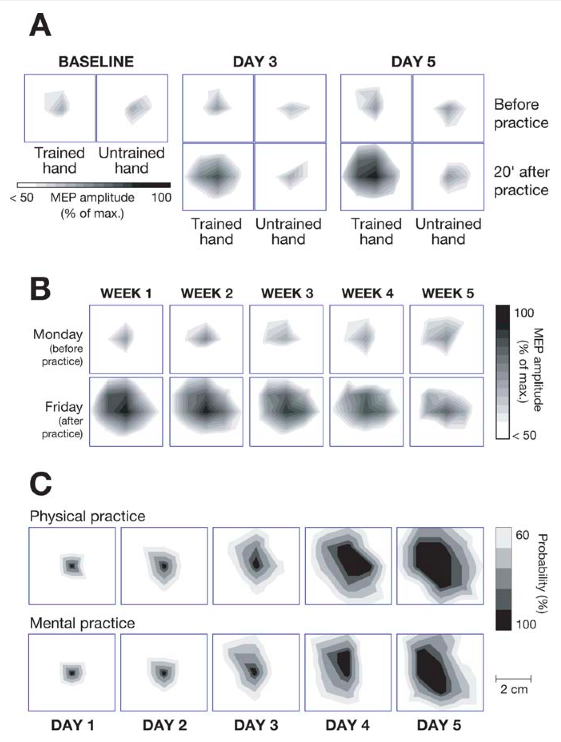Susan Greenfield recently presented an engaging lecture on neuroscience; “The 21st Century Brain: Impact of the digital world”, that I thoroughly enjoyed.
One of the experiments she described was “The Plastic Human Brain Cortex“, (by Alvaro Pascual-Leone, Amir Amedi, Felipe Fregni, and Lotfi B. Merabet), which investigated changes in the brain with piano playing. Three groups were studied; a control group who simply looked at a piano for five days (for once the control group drew the short straw). The next group learnt piano exercises, and the third group sat in front of the piano, imagining they were playing.

Upon studying the neural activity in the different groups, those who imagined playing had brains nearly as greatly stimulated as those who had actually been playing five-finger exercises. Just as the motor outputs reorganised themselves (this was a study on brain plasticity) after physical practice, so they did too with mental practice. This suggested that imagining playing activated the same “central neural structures” that are used when actually playing. Greenfield explained that mental practice has the capacity to promote plastic modulation of neural circuits, which would mean that mentally thinking about a task prepares the brain for actually carrying out the task, as the neural connections are already being used. It was not the movement itself that was important, but the thought that preceded it.
Thinking is movement confined to the brain.
This reminded me of lucid dreaming, which I read upon on a few years ago after experiencing it for the first time, where people claimed that dreaming about playing a sport helped with playing it in real life.
Focusing more on the title of the lecture, video games were (unsurprisingly) touched upon, with research confirming that playing video games causes desensitisation (through the normalisation of violence) and aggression. It also reduces attention span due to new stimuli being constantly introduced to keep players hooked. Social media became the main focus and has been proven to cause anxiety, narcissism, and insecurity among users, but the part I found most interesting, was that there is a drop in empathy among those who use social media, due to the lack of physical affection while virtually affirming friendships.

